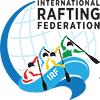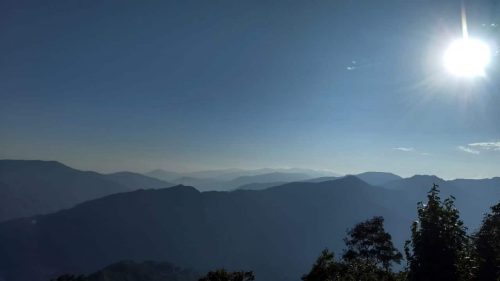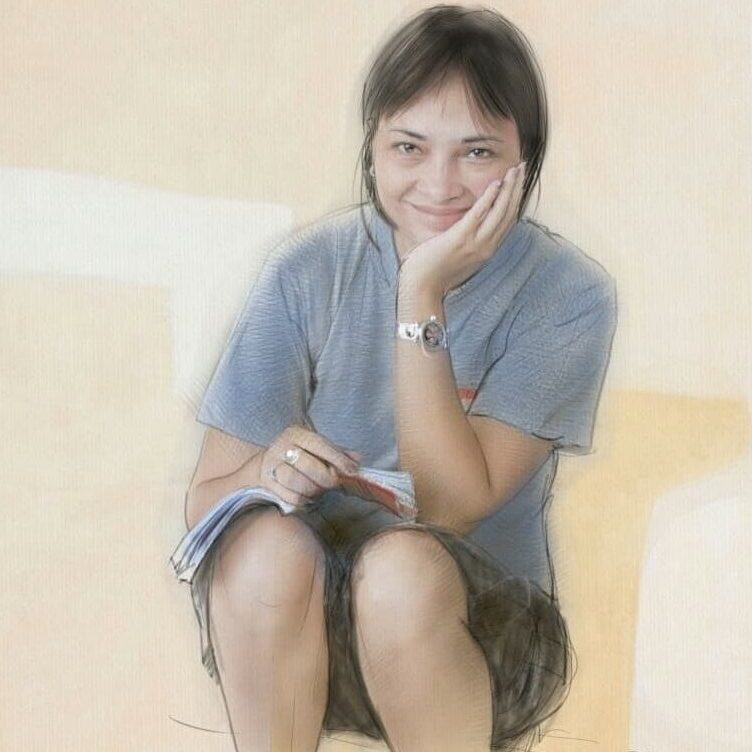Taking on climate change in Arunachal Pradesh: how one woman’s short trip to India turned into a two month adventure exploring, learning, and supporting local river communities.
Arunachal Pradesh: forgotten land of pure white water
By Natalia Zenkova
In 2014, I read a travelling journal on a plane. I saw beautiful pictures from North Eastern India. I tried to discover the region by internet, but I didn’t find much. It became a dream to have a look and discover that part of India, which recently opened the door to Seven Sisters – 7 North East Indian States.
At that time I supposed there might be plenty of white water near the Tibetan border. Fortunately I saw pictures from Russian Life journal about Arunachal Pradesh and a BBC World movie about life bridges in Meghalaya. Later I got acquainted with inhabitants of the area and with their original tribe culture.
20th of October 2018 was the day I have arrived to Arunachal Pradesh from the deep south of India. I reach Passighat where I met Nino Dai of Donyi Hango Tours. At the same time the most remarkable flood occured in Tibet on the same day. I had read local paper articles about the situation between India and China near the border with Tibet.
There are many military camps of both sides along the border – both of them have rafting facilities. From what I read, China doesn’t accept the McMahon demarcation line and limits of the Indo Tibetian border. Military action further complicated the already difficult problems at the region: earthquakes, local terrorism, rain season floods, bad roads (nowadays improving).
I participated at the local rafting championship as an international observer. It was sometimes hard and challenging work. But I would definitely like to do it again! I worked with volunteers to create stuff for the competition: flags, banners, markers, billboards. We made eco gates by using bamboo sticks. Some people even used their hands to paint the bamboo! They were so enthusiastic, motivated and helpful to carry it out. There were many local women who came to ask me: is it really possible to cross the river by swimming (only fisherman does it in this area)? I told them that they need to practice.
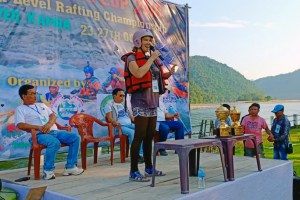
At the beginning of the opening ceremony the political leader of the local community asked me to make a speech in English. During the competition I also was asked by media to take interviews about my impressions of the Galo tribe (Arunachal Pradesh), and the situation about river pollution around the world. I had never done it before and I was very proud of myself and had a nice feeling like a celebrity.
The rafting competition attracted people from the nearest villages. Participants were mostly from Arunachal Pradesh: Siam and West Kameng districts. One team came from Assam state. Every evening we met at 6 p.m. The most important task was to establish IRF rules, system of judgment, paper protocols, sheets and calculations. We also had a lot of fun to discuss the actions of the day and make plans and repetition for the next one. We also made plans of competitor’s actions and sketching of river surveys.
After the rafting competition closing ceremony I travelled around Siam district with the local media team. And what I saw really needs to be shouted and promoted. In my opinion it is one of the best whitewater places in the world! Despite the area having restricted access, there are plenty of rivers, rapids, canyons, etc. It looks like a forgotten land. We were hosted by locals in the villages. They were so kind by giving food and making concerts for us to represent their culture. Whereever we went, people were great! Many people come to have a look at me:
– Al dure? – Al du!
It’s typical welcoming in the Galo area. Galo tribe is the biggest within Arunachal Pradesh. It has unique handicrafts and very strong shamanic traditions. One day main shaman of the village took us to his sacred land for the ceremony. He called for the spirit of the forest in a mysterious language that only Mother Nature can understand. Then he told us the story that his ancestor took this land from the English Queen. After the expedition, the media team brought me to their parent’s house.
In the evenings we were discussed rafting perspectives, cleaning water from the pollution, planning of public action. From their point of view, currently the situation for the development of water tourism is good. But they are not at all sure about future. Since being the minority, they couldn’t have significant impact on the policy of the central authorities.
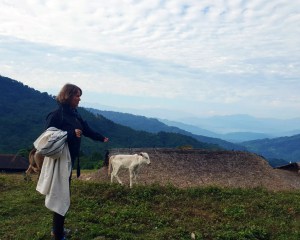 Then Nino Dai sent me to the white-water rafting expedition to have a look for the problems of water pollutions and dam of Subansiri River – the largest tributary of Brahmaputra River. It’s famous as the richest riverine fisheries all around India. Locals are deeply regretted that in beautiful river there are many plastic bottles, bags and other human garbage. It all circulates in catches of the river. Since Doporijio where we have had the take out until further down river, it looks like people use the slogan: “see my trash in Bangladesh”. The first thing I caught when we just started rafting was one women’s single shoe. I put it on the nose of the raft. I think it needs to be some regulation and education programs how to use rives resources nicely. We should clear up the situation, then purify people mind very gently. Only cleaning actions don’t bring many positive results. Humans must be aware about the environment.
Then Nino Dai sent me to the white-water rafting expedition to have a look for the problems of water pollutions and dam of Subansiri River – the largest tributary of Brahmaputra River. It’s famous as the richest riverine fisheries all around India. Locals are deeply regretted that in beautiful river there are many plastic bottles, bags and other human garbage. It all circulates in catches of the river. Since Doporijio where we have had the take out until further down river, it looks like people use the slogan: “see my trash in Bangladesh”. The first thing I caught when we just started rafting was one women’s single shoe. I put it on the nose of the raft. I think it needs to be some regulation and education programs how to use rives resources nicely. We should clear up the situation, then purify people mind very gently. Only cleaning actions don’t bring many positive results. Humans must be aware about the environment.
For example, back in 2014 I was in Dharamsala, India. My target group were the foreigners who used to visit every year. I started my small “clearing project”. I found the owner’s of tailor shops and was given kilograms of wool clippings. I organised many workshops for making dolls from it. Then we literally processed and washed garbage and put it as accessories for dolls. After demonstrating this idea – it became quite popular. Sometimes even small steps change the mind. Nowadays I am very happy to see the bunch of eco projects continuing to happen there.
In the Arunachal Pradesh expedition I saw magnificent eco systems: many interesting trees growing like a family, insects’ migration, fish and bird movements. I remembered the night sky full of stars. All that amazing natural eco system is going to disappear if the dam in lower Subansiri gets be completed. Also all the rapids will disappear as the consequence of higher water. Participants of the expedition were not passive in terms of these questions. We were talking a lot about protesters, as a result of their action the dam building went in bin. At this time, my first month in Arunachal Pradesh finished.
Nino met the group and brought me to a hotel on his way back home. The prime minister of Assam and vice-minister were making meetings in the hotel so I got a chance to talk with some of the most power politicians in North East.
Next morning I crossed a river channel of Brahmaputra river to reach the middle of the river – Majuly Island. For many years it was the biggest river island in the world. But nowadays the river has washed awat 2/3 within the last century. Regular earthquakes and floods caused erosion of the coast line. It’s an amazing spiritual place with tribe’s villages around. Immediately after my trip here began my next adventure starting with judging a kayaking competition in Mechukka.
Follow the rest of Natalia’s adventures next week here on the IRF website.
#EcoRafting #TourismStrong #ClimateAction #Sustainability #AreYouReady #RaftersAreAwesome
External links are provided as a convenience and for informational purposes only; they do not constitute an endorsement or an approval by the International Rafting Federation of any of the products, services or opinions of the corporation, organisation or individual. The International Rafting Federation bears no responsibility for the accuracy, legality or content of the external site or for that of subsequent links. Contact the external site for answers to questions regarding its content.
Please let us know about existing external links that you believe are inappropriate.
